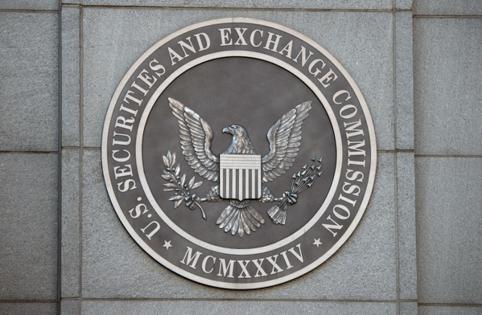Allison Schrager: Earnings reports don't need to be quarterly
Published in Op Eds
Once again, the president is questioning what purpose is served by publicly traded companies issuing quarterly earnings reports. Not only did Donald Trump raise this issue back in 2018 — so did Barack Obama in 2015.
Which just goes to show that the arguments against quarterly financial reports are neither crazy nor new. It was not until 1970 that the U.S. Securities and Exchange Commission required quarterly reporting, and it has not been required in the UK since 2014.
I have argued that more transparency is generally better. A more frequent flow of information can lead to fewer surprises, less market volatility and a lower cost of capital. It also leaves less room for fraud and other financial shenanigans.
But there is a cost to transparency. Proponents of semiannual reporting (often corporate CEOs) argue that it would encourage firms to be more long-term in their thinking and strategy. If so, there is little evidence for it. Long-term investing requires thinking years ahead. Would releasing financial results and guidance just twice a year instead of four times make that big a difference?
There is a natural experiment in the UK, which went from semiannual to quarterly reporting in 2007, and then back to semiannual in 2014. A CFA study found no big changes in capital expenditures or research and development with either switch. Another study found no evidence of more long-term thinking from more frequent reporting. And it’s worth noting that even though they are allowed to issue semiannual financial reports, 90% of UK companies continued to report quarterly.
The CFA report did find that smaller firms were more likely to report semiannually after 2014. Less frequent reporting would be the big benefit for them. In 2016, audit costs alone (including quarterly and annual reporting) accounted for 0.05% of revenue of large firms and 0.33% for small firms. Most of that cost is the annual report, which firms would still have to produce, but these are only audit costs. There is also the time senior staff must devote to the reports and earnings calls, which is a larger drain on firms with fewer employees.
One of the issues facing U.S. markets in the last several decades has been the decline in initial public offerings. There are several reasons for the drop, including a change in market structure that favors acquisition over going public, the stunning growth of private markets, and increased compliance costs with regulations that were added following the Enron bankruptcy and the financial crisis.
It’s not that ditching quarterly reports could by itself revive the IPO market. But it wouldn’t hurt. Things may only be getting worse for smaller companies, which will struggle to raise capital in a higher-rate environment and a more challenging private equity market, even as tariffs eat into their profits.
Letting small firms report semiannually would be some relief. The SEC could theoretically let only small firms report less frequently — but based on the UK experience, introducing this sort of distortion is probably unnecessary. Bigger firms will probably still report quarterly, either to ensure analyst coverage or because they worry that semiannual reporting would be a bad signal to markets.
One of the supposed drawbacks of semiannual reporting is that it will hurt the retail investor, because institutional investors rely on other data, some of it proprietary, and will continue to get the information they need. But most U.S. households are in the market through mutual funds; only 20% even buy individual stocks. And if less frequent reporting entices more small firms to go public, retail investors would benefit — they would have access to growing companies normally available only in the private market.
A few years ago, I might have argued that moving to semiannual reporting was a net negative, mainly because it would reduce transparency. But the current (and likely future) financial environment is challenging for small firms, and private markets are too opaque. In that context, if less frequent reporting lures some private companies into public markets, then it could help both businesses and investors alike.
_____
This column reflects the personal views of the author and does not necessarily reflect the opinion of the editorial board or Bloomberg LP and its owners.
Allison Schrager is a Bloomberg Opinion columnist covering economics. A senior fellow at the Manhattan Institute, she is author of “An Economist Walks Into a Brothel: And Other Unexpected Places to Understand Risk.”
_____
©2025 Bloomberg L.P. Visit bloomberg.com/opinion. Distributed by Tribune Content Agency, LLC.
























































Comments